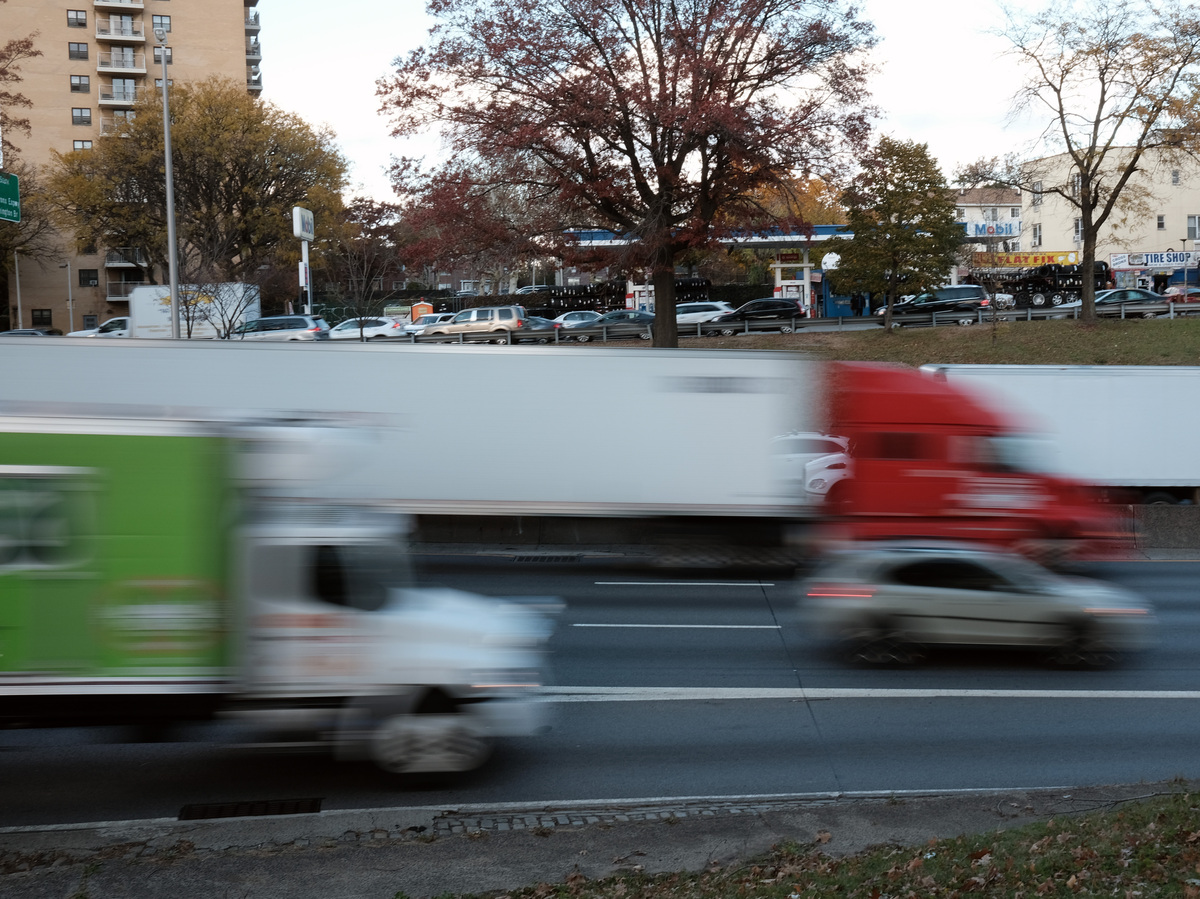
Cars and trucks move along the Cross Bronx Expressway, a notorious stretch of highway in New York City that is often choked with traffic and contributes to noise and air pollution. November 16, 2021. Spencer Platt/Getty Images hide caption

Cars and trucks move along the Cross Bronx Expressway, a notorious stretch of highway in New York City that is often choked with traffic and contributes to noise and air pollution. November 16, 2021.
Spencer Platt/Getty ImagesA growing body of research makes it clear that noise pollution can have severely harmful impacts on our health. It has been tied to heart disease and thousands of premature deaths around the world.
Still, our communities seem to get louder and louder. Some people are fighting back - pushing for more regulation and quieter cities.
NPR's Pien Huang takes a sonic tour of Providence, Rhode Island with researcher Erica Walker and talks about noise pollution solutions with Jamie Banks the founder and president of Quiet Communities, and New York City Council member Gale Brewer.
Email us at
This episode was produced by Marc Rivers. It was edited by Scott Hensley and Adam Raney. Our executive producer is Sami Yenigun.

 Live Radio
Live Radio